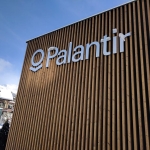India: New Computer Operating System Takes Country by Storm
MUMBAI -- Linux, a computer operating system that has thrown up the biggest ever challenge to Microsoft's monopoly and which got a boost with the Hollywood blockbuster "Titanic", is taking the Indian software industry by storm.
The Indian Institute of Technology (IIT), which produces the best of Indian brains, has become the hub of Linux users who call it a "socialist software".
Those who are stuck with Microsoft's Window operating system here say that Bill Gate's days of virtual stranglehold are numbered. Linux was used by producers of "Titanic" to create special effects in the film.
"There is a sense of belonging with Linux and it does not intimidate us the way Bill Gates does," says an IIT student. He is one among the many computer users who feel Microsoft is too aggressive in its marketing and leaves little choice for those who would want their computers to behave a little differently.
A software engineer with a reputed online media service confirms, "In Linux world everything is transparent. I know what precisely my computer is doing when I give a command. It is reliable, flexible and has a great future."
The Linux operating system, which is a decentralised invention of millions of hackers around the virtual world, promises to drastically alter the Microsoft-centred computer software industry, if the response in the Indian market is any indication.
It is called a socialist software because its invention and development was never driven by corporate profiteering. Many users feel it is politically correct to switch from Microsoft to Linux.
Linux, which is considered to be a family member of Unix, was originally created by a Finnish programmer called Linus Torvalds. He never kept its Commercial Source Code a secret and hence the system developed and circulated faster than anybody could ever think of.
The Commercial Source Code is copyrighted, sometimes patented and always jealously shielded from competitors who might use it to create clones or to match its functions in other programmes. It is shared cautiously at best, and usually under legal strictures.
The Linux operating system, which is entirely free, could be downloaded through the Internet or bought from the market at the price of peanuts.
And every enterprising user of Linux is also a programmer. Since the software comes with its source code just about anybody could modify and customise the programme to suit the requirements.
According to Eric S. Raymond, a big time programmer and a part time hacker based in US, "Linux is subversive." He asks, "Who would have thought even five years ago that a world-class operating system could coalesce as if by magic out of part-time hacking by several thousand developers scattered all over the planet, connected only by the tenuous strands of the Internet?"
Computer buffs, who earlier used to spend considerable time debugging a programme pushed in the market by Microsoft, have now become developers themselves. "This is certainly the constructive use of brain power," says Rajesh Mehta, a software consultant.
The Linux, in fact, has nothing to do with shareware or freeware programmes available on the Internet today. These programmes come to you without their source code, which means either you use it or dump it but you can't change it to suit your requirement. In the Linux culture, free software is about being able to share, reproduce and even modify a programme's source code, the instructions which define it.
Software developers say that Linux is gaining popularity and it has become a strong competitor in the Unix market and is emerging as a viable competitor to Microsoft's Windows NT, which now commands more than 35 percent of the global network server market.
The Linux's development model is also being accepted by the giants of global software industry. For example Netscape, a popular Internet browser, announced last month that by the end of the first quarter of this year, it would be giving away the source code of its popular Communicator suite of Internet software products, including its Navigator World Wide Web browser.
- 192 Technology & Telecommunications



